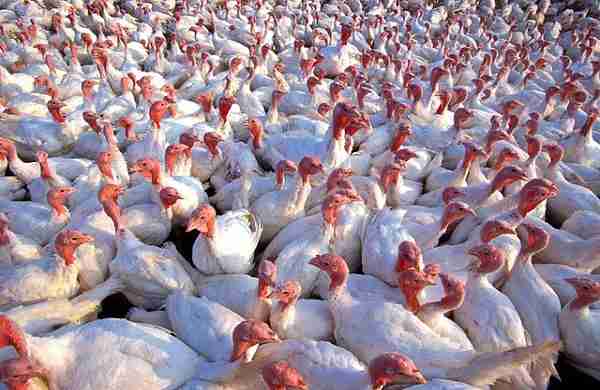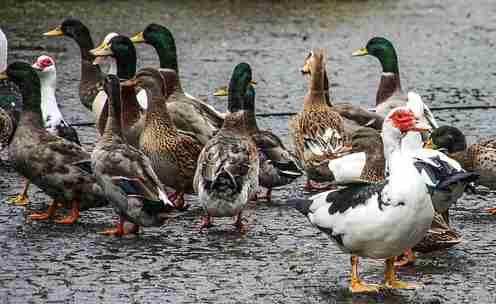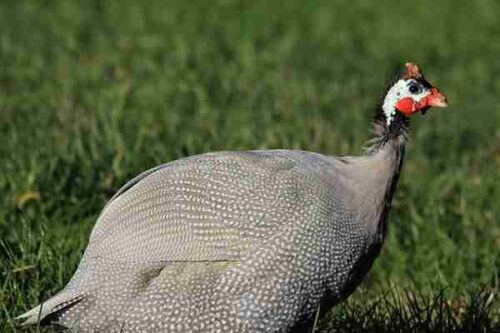Start poultry farming & make a good profit, Loans & subsidies to farmers
Planning to set up your own poultry farm? In this article, we will help you with basic ideas, guidelines, and tips to start a poultry business.
Poultry, domestic or commercial farming of birds, mainly meat and eggs but also feathers. Chicken, turkey, duck, and geese These are of primary importance, while guinea fowl and squabs (young pigeons) are of local interest. This article studies the principles and methods of poultry rearing. See Eggs and poultry processing for a discussion of food value and processing of poultry products
There are also many banks and financial institutions that provide loans for poultry farming. From a broader perspective, poultry rearing is the commercial expansion of a variety of pet businesses for the production of meat, eggs, and feathers.
For commercial production and poultry processing, there are lots of ways to do poultry farming
Profit Calculation for 2000 Nos. Broiler chicken
Process and guidelines for starting a poultry farm
Read the below Process carefully before you start a poultry business;
1. First Select your poultry sector
There are two types of poultry in broad language – broiler and layer. Broilers chickens that are raised for specifically meat production while layers chicken cultivated only for eggs production.
So first you have to decide what kind to choose and then there is the business of laying eggs and raising chickens for meat.
If you want to do business in multiple types of area, you can
- Mass Meat production
- Poultry food production
- Egg production
- Egg and meat processing or poultry processing
- Chicken Breeding (Hatchery)
- Choose the type of poultry
You can start a small poultry farm by initially selecting five or six birds and then add more birds after looking at your business growth
Poultry mainly breeds birds like domestic birds or chickens and Guinea birds are grown as broilers meat production and for egg production ducks, quail, pigeons, turkeys can be grown.
2. Types of Poultry
Select type of your bird or poultry farming depends on country requirements
Chickens
20th 21st -century production of chicken meat and eggs began in Large-scale, with worldwide exports reaching about 11.9 million metric tons (about 12.7 million tons) in the early part of the 21st century.

Egg production
Breeds of hens are generally classified as American, Mediterranean, English, and Asiatic. With hundreds of varieties in existence, commercial facilities depend on a select few to meet the stiff demand for industrial products.
The single-combed white leghorn, widely used in the entire Mediterranean breed egg industry, is an abundant layer that quickly reaches sexual maturity.
Meat production
White Rock and the Cornish Cross, a hybrid, is common breeds for Commercial meat production and is credited with their compact size and fast, efficient growth.
groups on small farms and in backyards use a wide variety of breeds and hybrids. Common American species include Plymouth Rock, Rhode Island Red, and New Hampshire. They are all dual-purpose breeds suitable for both eggs and meat. Asiatic Brahma, considered native to the United States from birds imported from China, is popular for both meat and large brown eggs.
Turkey
Turkey’s production became very extraordinary and grew a large group in the majority. Large turkeys are bred in Canada and their nearby countries where their existing breed still live in the Jungle, as well as in parts of Europe, Africa, Mexico and the United States, Brazil. A hybrid white turkey controls commercial production, for the smaller farms you can have this breed like Broad-breasted White, Broad-breasted Bronze, White Holland, and Beltsville Small White are common breeds. Breeding in the group requires one male turkey for every 8 or 10 female turkeys in the group, although modern hybrid turkeys are too large for natural breeding and require artificial cross-fertilization.

Turkey’s new modern breeding and farming methods have significantly reduced both the amount of feed and the time required for the production of 2.3 pounds (1 KG) of turkey meat. 3-4 months the turkey eats about 1.5 kg (34 pounds) of feed and it reaches 10 kg (21 Pound). Male turkey needs approximately 5 kg (10 pounds) of feed per day to gain 20 kg (45 pounds) in 4-5 months. Small turkey broilers range in age from 3.-4 months. Turkey can be cultivated on open ground with automatic water systems, self-feeders, range shelters, heavy fencing, and rotating grazing; however, they are cultivated professionally to care for homes under naturally controlled conditions.
Duck

Although some commercial seedlings exist, as a small farming business in general, limited duck breeding is practiced in almost all countries. Ducks are easily transported, can be kept in close quarantine, and some waste products and crushed grains are converted into nutritious and highly desirable eggs and meat. Khaki Campbell and Indian runner ducks are plentiful layers, be more or less 300 eggs each year. One of the most popular breeds in the United States is the puckin duck is used for both egg and meat products.
Guinea birds

In many countries, Guinea birds are raised as a secondary in some of the farms and are eaten as a delicacy. Italy has one of the most extensive industries. Birds are often raised in open-air shelters, and numerous varieties and species are used around the world. Guinea birds are sold at 4-5 months of age in England and Canada and around 2.5 to 3 months in the United States. The market weight is usually 1.5 – 2 kg (3-6 pound), the food conversion is low or poor.
3. Try to understand your selected market
Understand who your local buyer is? Will you sell to customers directly from your farm? How will your customers know where to find you? Will you sell to restaurants?
4. Prepare a proper business plan
Once you have identified your market, set specific and measurable goals, such as how many broilers you will raise for your first run. What is the size of the market? What equipment do you need for them, such as fencing, houses, water pots and food?
Then decide your capital. How much capital do you have? How much will it cost to build a house or hatchery and chicks? Feed cost is required. Also, note medications or supplements.
5. Set the location of the farm
Build your poultry farm a short distance from the city to get cheap land and labor. The location should have all the necessary facilities which are required for business. Make sure to choose a city with your target customers.
6. Buy chicks and grow them
Buy one-day-old chicks and grow them for 2-3 months then sell them live. Consider other things like food, medicine and necessary amenities.
7. Product Marketing
Simple easy marketing of your product to make more profit. You can simply sell your products in the nearest local market. Use visiting cards, advertisements, leaflets to promote your products.
Beneficial advice for poultry farmers
We recommending visit a few of the farms practically and start your business on a small level with 10-15 numbers. Once you have enough knowledge about poultry background go for mass commercial production. Always sell chicken dung in the summer.
The return on poultry farming is very promising. Poultry birds are replaced every year to maintain high productivity with minimizing mortality
Start poultry farming and make a good profit; Information about loans and subsidies to farmers
The poultry industry in India started 2000 years ago. Poultry farming was a major industry. However, it has been seen as a commercial industry since the 19th century. This has become a big industry considering the ever-increasing demand for chicken eggs and eggs. Poultry farming is a business that can be a source of additional income for you. This business can be started at a very low cost and you can make huge profits through it. To promote poultry farming more number of farmer and to get profit on poultry the State Governments, as well as Central Government, provide loans and training facilities.
What do you need to start poultry farming?
- The land is required to start poultry farming.
- To start poultry farming or a chicken farm you should choose a place a short distance from your village or town.
- Choose a place where there is good access to water, clean air and sunlight and vehicles.
- Loans and grants for poultry farming
- NABARD provides subsidies on poultry farming or chicken farm.
- The government subsidizes up to 20-25% for poultry farming.
- For SC / ST class people this grant is up to 30-35 percent.
- Anyone can take a loan for poultry farming.
How can you get a loan and which Banks?
- You can take a loan from any government bank for poultry farming.
- State Bank of India (SBI) provides loans up to 70-75% of the total cost for this work or project and provides loans up to Rs. 3, 00,000 for raising up to 5,001 chickens. From here you can get a loan of up to Rs 8-9 lakh. The loan repayment period will be 1 to 5 years. If for some reason you are unable to repay the loan in 1-5 years, the bank will give 5-6 months extension to pay the Payment.
- The scheme has been dubbed ‘Broiler Plus’ by the State Bank of India. Under this scheme, space has been made available for poultry farming, or chicken farm purchase of equipment and chickens.
Required documents for loans
You can easily start poultry farming or chicken farm with a bank loan
- Identity Certificate – Driving License, Voter Identity Card, PAN Card or Passport, Aadhar card required.
- Two passport size photographs.
3 Address proof requires ration card, electricity bill, telephone bill, water bill or lease agreement, Maintenance bill.
4 Poultry Project Report (your Complete Plan)
5 bank account statement Xerox
Banks Offering Loans for Poultry Farming;
We will look at eligibility, repayment period, required documents, and how to apply
If you are thinking of starting a chicken farm and are looking for banks or financial institutions that can help you, keep reading this article. Animal husbandry is an important branch of agriculture and many farmers depend on it for their livelihood to boost the development of the sector, with the government providing loans to people involved in the sector, including national and private banks. Below we have listed the top lenders for poultry farming.
Banks in India that gives Poultry loan
Many banks in India provide agricultural loans for crops, poultry, and animal husbandry. Here are some of the top banks providing agricultural loans.
SBI Poultry Loan
State Bank of India provides loans for various types of farming, SBI Poultry Loan for existing as well as new farmers to set up poultry sheds, feed room, and other equipment.
Eligibility – Farmers who have sufficient experience or knowledge in the poultry business and have land to establish poultry farming are eligible for this loan.
Secondary Safety – For safety reasons, poultry sheds and other infrastructure are available or it is mandatory for farmers to mortgage the land they are planning to build with at least 500 percent advance.
Repayment Period – The repayment period of this loan is five years which includes a six-month grace period in bi-monthly installments.
Required Documents – Properly filled in the application along with proof of identity like Voter Identity Card / PAN Card / Passport / Aadhar Card, / Driving License, etc., they are required to submit Voter Identity Card / Passport / Aadhar Card / Driving. License etc.
How to apply for SBI loan
Contact your nearest SBI branch for application or you can also check the official website
SBI Broiler Plus Loan
State Bank of India provides loans to broiler farmers under contract farming. The scheme provides loans to farmers for contract broiler farming, construction, and feed room as well as the purchase of equipment.
Eligibility – With adequate training or experience in the poultry business and having land to build a poultry shed. The land should be at least 500 meters away from other checken farms and there should be a source of potable water.
Group size – The minimum size of a group must be 5001 birds and can be financed for 10,500 and 15,500 birds or part of it.
Loan amount – up to 70-75% of the cost. The loan amount will be up to Rs 2.5 to 3 lakh for each 5001-bird farm. The maximum loan amount is Rs. 8-9 lakhs/farmer.
Safety – For security, the person must mortgage the space where a poultry shed and other infrastructure is available or is planned to be built which requires at least 50 percent advance.
Repayment – The loan must be repaid within five years and an additional period of six months will be provided.
How to apply for SBI Poultry Loan
To apply for an SBI loan, contact your nearest State Bank of India branch or visit the official website
Punjab National Bank Loan
For the construction of sheds and the purchase of equipment, Materials PNB Can provide a loan. It also provides product loans for day chicks, food, medicines, etc.
Benefits of PNB loan
For Supporting Terms – The bank provides medium-term loans for the acquisition of fixed assets and production credit as short-term loans for capital needs.
Eligibility – Small farmers, landless farm laborers, or others who are planning to start a chicken farm/shed with income to start a poultry farm are eligible for loans.
For the main purpose – an investment loan will be provided in the form of a medium-term loan while product credit will be given in the form of the cash credit limit or as an integral part of the investment credit union.
Eligibility – The person concerned should be running a poultry unit on a commercial basis. Must have land/shed to set up or raise chicken farm.
Secondary Security – For security, the person must have land or a third-party guarantee.
You will get a loan depends on your poultry size and type
Repayment tenure – 1.5 to 1 year in the case of layers and broilers chicken. The repayment of investment loans will be for 6 to 7 years depending on the ability of small farmers to repay their loans.
Required Documents – Proof of Identity (Voter Identity Card / PAN Card / Passport / Aadhar Card, / Driving License) and Application Form along with valid Address Proof.
How to apply for a PNB loan for poultry farming
fill up the loan application at your nearest local PNB branch. Or you can check https://www.pnbindia.in/
HDFC Agricultural Loan
HDFC Bank provides cash crops, plantations, poultry, animal husbandry, dairies, seeds, warehouses, etc. to farmers. Provides financial support to farmers with cultivation experience. HDFC Bank provides loans to farmers and farm laborers for setting up small poultry (layer/broiler). Farmers can get a 100 percent loan amount as compared to the cost of property or project.
Eligibility – All individual farmers, with experience in Poultry Management Certificate or agricultural laborers, can avail bank credit for the Poultry Unit. The applicant must be trained or technically qualified to operate the unit.
Guarantee Security – For security reasons, the person must have a land / third-party guarantee.
You will get a loan depends on your poultry size and type
Repayment Period – Long repayment period up to 5 years.
Required Documents – Form filled with valid proof of identity and proof of address.
How to apply for HDFC loan?
Contact the nearest HDFC branch to apply or visit the official website
IDBI Poultry Loan
The IDBI loan benefits existing and new farmers to set up poultry sheds, feed rooms and other equipment.
Eligibility – Farmers with in-depth knowledge/understanding of Poultry Certification certified by training certificate or experience certificate etc. are eligible for Poultry Loan.
Repayment Period – The repayment period of IDBI Poultry Loan is six years.
Required Documents – Application duly filled with address proof like identity card as well as voter identity card/passport / Aadhar card/driving license.
How to apply for IDBI poultry farmingLoan?
To apply for a poultry loan, contact the nearest IDBI branch and fill up the application. Also, see https://www.idbibank.in
Federal Bank agricultural loans
The Federal Bank offers agri-allied loans, livestock loans, dairy loans, and poultry loans. Farmers can borrow up to 100 percent of the cost of the property or project cost.
Eligibility – Applicants with proper knowledge of poultry as proved by training certificate or experience certificate are eligible for a Federal Bank loan.
Loan Amount – For loans up to Rs. 50,000, you can avail 100% of the cost of the property/project cost. You can take up to 85% of the property/project cost over Rs
Repayment Period – The Federal Bank provides a repayment period of up to nine years